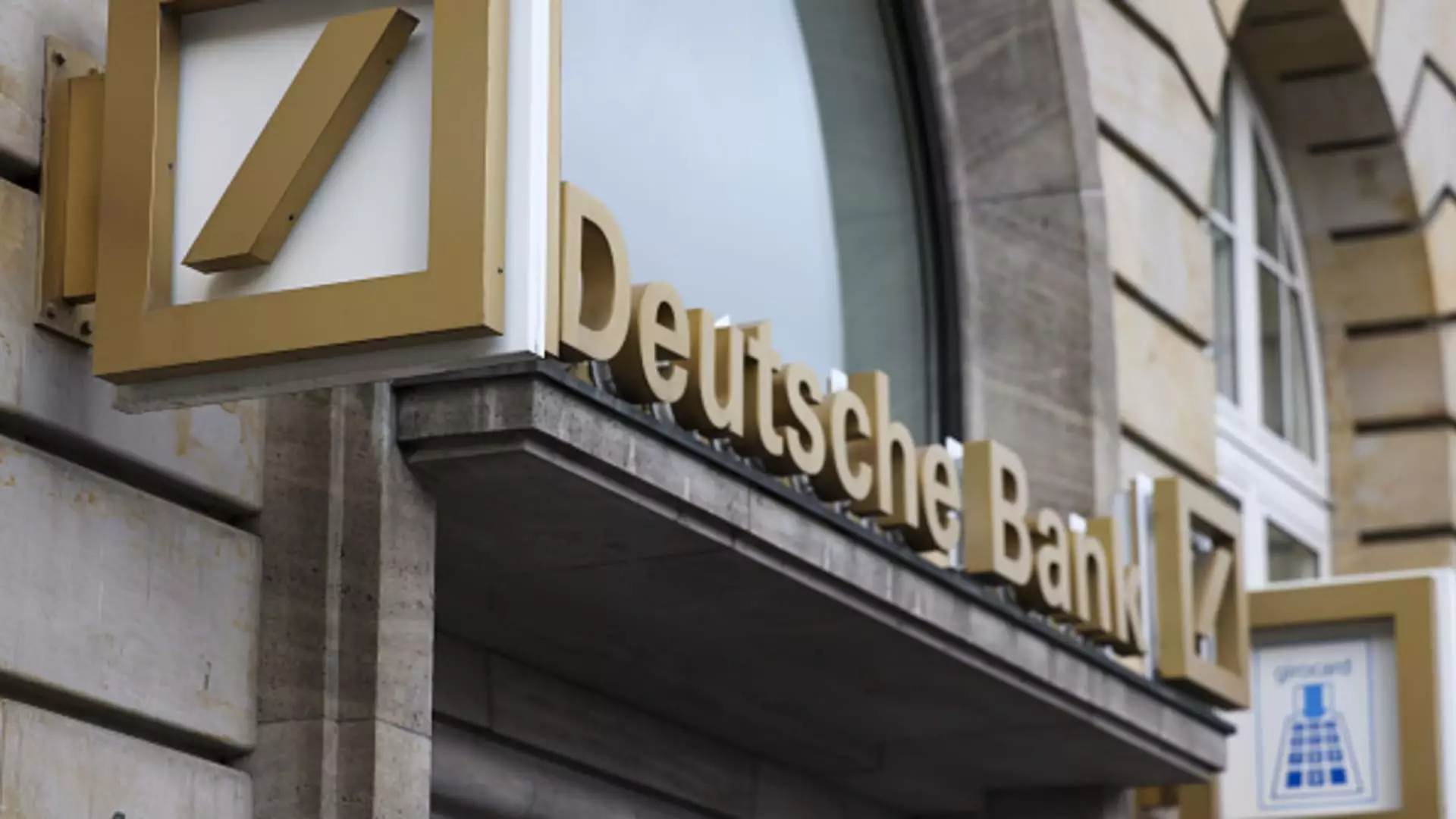Deutsche Bank recently announced its impressive financial results for the third quarter of 2023, showcasing a resurgence in profitability after experiencing a significant loss in the previous quarter. The net profit attributable to shareholders soared to 1.461 billion euros (approximately $1.58 billion), surpassing analysts’ expectations of 1.047 billion euros, according to a poll by LSEG. This recovery is notable given the challenges the bank faced in the last quarter, marking a pivotal turnaround as it navigates the complex landscape of European banking.
Revenue also robustly supported this positive trend, reaching 7.5 billion euros, exceeding forecasts of 7.338 billion euros. This increase in profits and revenue not only underscores Deutsche Bank’s strong operational performance but also reflects a broader resilience within the financial sector amidst changing economic conditions.
Critical Financial Highlights
Key financial metrics offer further insight into Deutsche Bank’s recovery. The profit before tax for the quarter stood at an impressive 2.26 billion euros, a remarkable 31% increase in comparison to the previous year. This rise is complemented by a provision for credit losses, which increased to 494 million euros, up from 245 million euros in the same quarter the previous year. The rise signals prudent risk management as the bank prepares for potential financial headwinds.
In terms of solvency, the CET1 capital ratio—a critical measure of a bank’s financial health—rose to 13.8%, up from 13.5% in the second quarter. This increase indicates strengthening capital buffers, crucial for enduring economic fluctuations and maintaining stakeholder confidence. Furthermore, the return on tangible equity (ROTE) has reached 10.2%, a substantial improvement compared to 7.3% a year prior, although adjusting for litigation provisions the figure reflects at 7.6%.
A significant factor in Deutsche Bank’s third-quarter performance was the partial release of 440 million euros from litigation provisions linked to its long-standing Postbank acquisition lawsuit. With approximately 60% of the plaintiffs settling their claims, the resolution of this legal exposure allowed the bank to allocate funds more productively, thereby enhancing its profitability. This outcome has contributed positively to market confidence, allowing Deutsche Bank to revisit previously shelved plans for share repurchases.
CEO Christian Sewing remarked on the bank’s strategy, emphasizing a commitment to profitable growth and the long-term objective of capital distributions to shareholders. This perspective reflects a shift in focus toward returning value to investors, a move that is increasingly becoming a focal point in the competitive banking sector.
Growth in Investment Banking and Future Outlook
The investment banking division proved to be a crucial driver of growth, with revenues increasing to 2.5 billion euros, an 11% rise year-on-year. This growth was predominantly visible in the fixed income and currencies unit, demonstrating Deutsche Bank’s capability to capitalize on market opportunities. Meanwhile, the asset management sector also reported net revenues of 660 million euros, again marking an 11% increase from previous figures, reinforcing Deutsche Bank’s diverse revenue base.
However, the broader European banking landscape poses notable challenges, particularly in light of declining interest rates influenced by the European Central Bank’s monetary policy adjustments. According to analysts at McKinsey, maintaining current return on tangible equity margins will require banks to manage their costs judiciously, potentially needing to reduce expenses at a pace much faster than revenue declines.
In an effort to streamline operations and enhance efficiency, Deutsche Bank has initiated a cost-saving strategy aimed at reducing its workforce by 3,500 roles by 2025, following previous announcements of job cuts. As of now, the bank’s full-time workforce numbers 90,236 after a slight increase in staff during the third quarter, indicative of its cautious yet deliberate growth approach.
The recent announcement regarding the potential acquisition of Commerzbank by Italy’s Unicredit further underscores the shifting dynamics in the European banking landscape. Market participants are closely observing these developments, with other major banks like Barclays and UBS set to announce their results, which could illuminate trends pivotal for the entire sector’s trajectory.
Deutsche Bank’s third-quarter results illustrate a robust recovery and a strategic pivot toward profitability that positions it well amid ongoing economic uncertainties. While litigation resolutions and strong investment banking performance contributed significantly to this success, the bank must remain vigilant in addressing operational costs and adapting to the broader challenges facing the European financial sector. The roadmap ahead for Deutsche Bank involves balancing profitable growth with sustainable practices to enhance its competitive standing in an increasingly complex market.



Leave a Reply